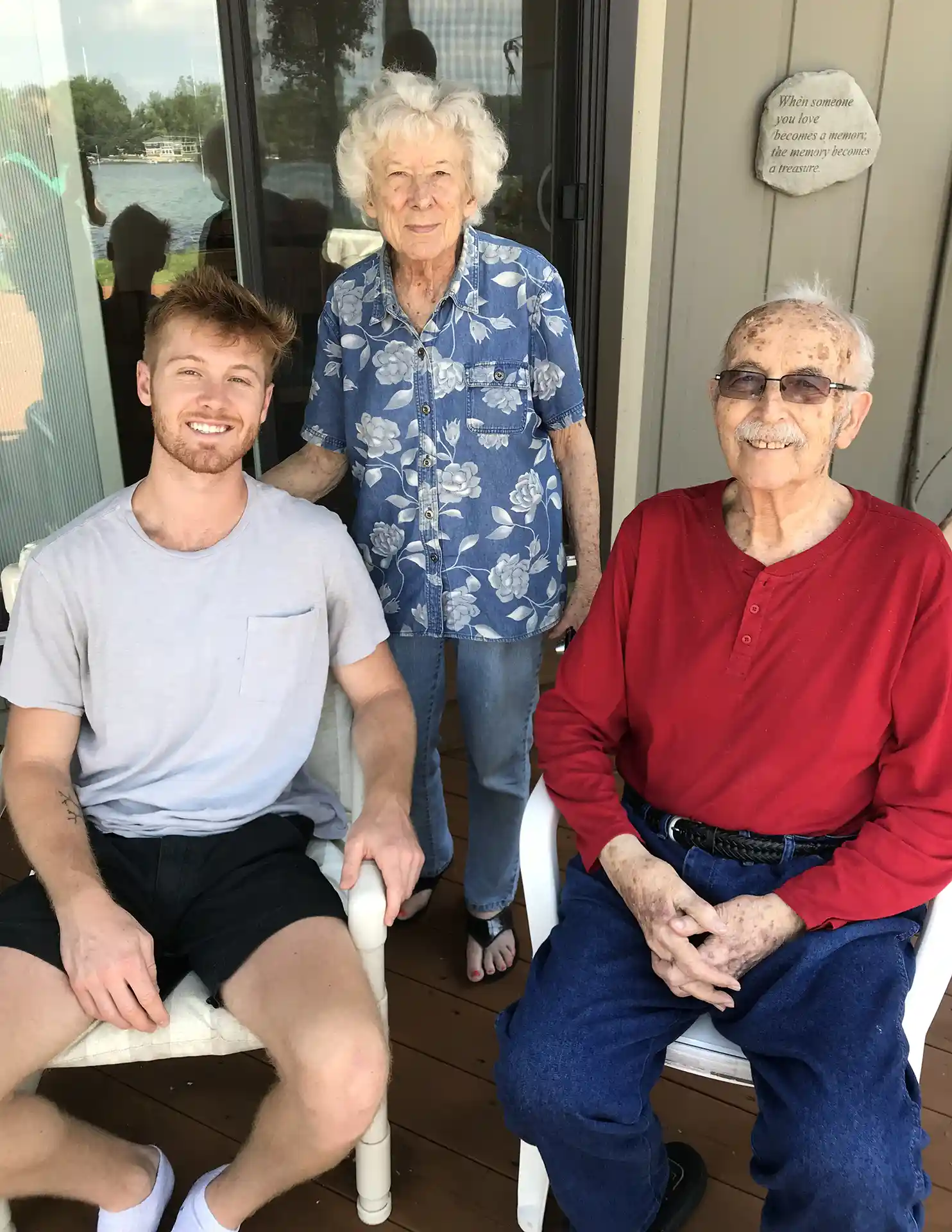From Dropout to Neuroscientist
A once-reluctant undergrad turned national science prize winner is challenging Alzheimer’s disease
By Bob Woods
Photography by Peter Freed
Family portrait courtesy of Jack Stahl

Jack Stahl with his paternal grandparents, both of whom succumbed to Alzheimer’s disease.
Jack Stahl was studying biochemistry as a freshman at the University of Miami in 2019, but he found his academic interests waning. So, he dropped out and got a night job tending the front desk at a hostel, whiling away hours of downtime reading PubMed articles about how the brain works. “That’s when I realized that the No. 1 thing I’m interested in is the brain,” Stahl said.
Today, after reenrolling and earning a dual undergraduate degree in biochemistry and psychology, Stahl is a Ph.D. student in the Miller School’s neuroscience program, preparing to graduate this spring. He’s also working in a laboratory run by Claes Wahlestedt, M.D., Ph.D., professor of psychiatry and behavioral sciences and associate dean for therapeutic innovation.
Stahl is researching a novel drug therapy to treat Alzheimer’s disease. The therapy involves oligonucleotides, which are chemically modified short DNA or RNA molecules. “My invention, on which we’ve filed a patent, is a way to combine two or more oligonucleotide drugs into one molecule,” Stahl said.
Alzheimer’s begins with a buildup in the brain of amyloid beta plaques that eventually results in tau tangles, which destroy brain cells and ultimately lead to the cognitive impairments that characterize the disease. Current therapies eliminate the plaques, but not the tangles. “This drug can remove both the plaques and the tangles, and potentially prevent an Alzheimer’s diagnosis,” Stahl said.
Last fall, Stahl’s team won the Eli Lilly and Company Genetic Medicine Grand Challenge. He used the $100,000 award to help fund TheRNA Inc., a biotech company he co-founded.
Stahl is personally motivated to improve Alzheimer’s therapeutics. Both of his grandparents on his father’s side succumbed to the disease, which inherently puts his dad at risk. “He jokingly tells me to hurry up and make a drug for it before it’s too late for him and others,” Stahl said. “That’s what has kept me in the lab and spurred me on to where I am today.” ![]()



